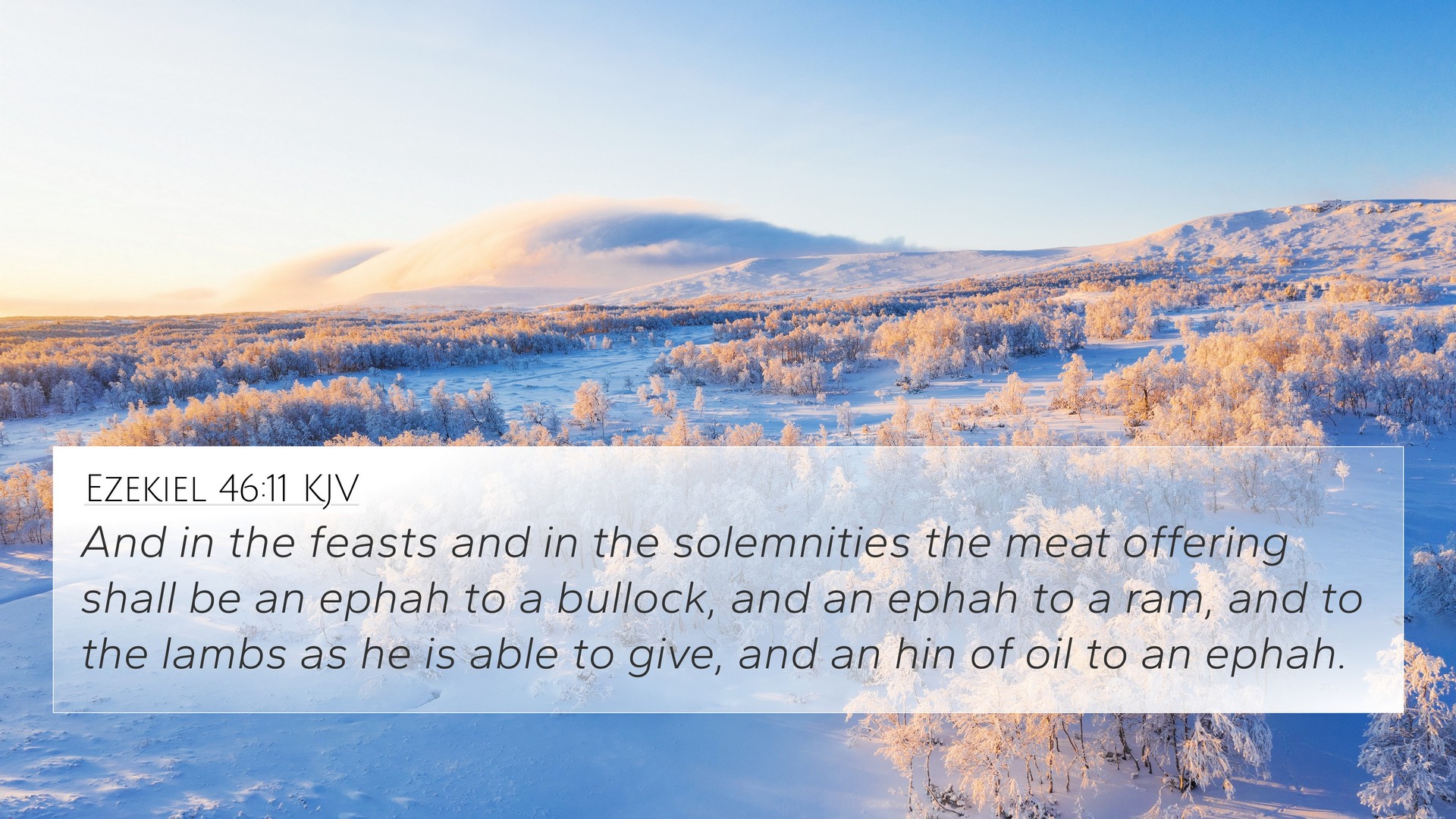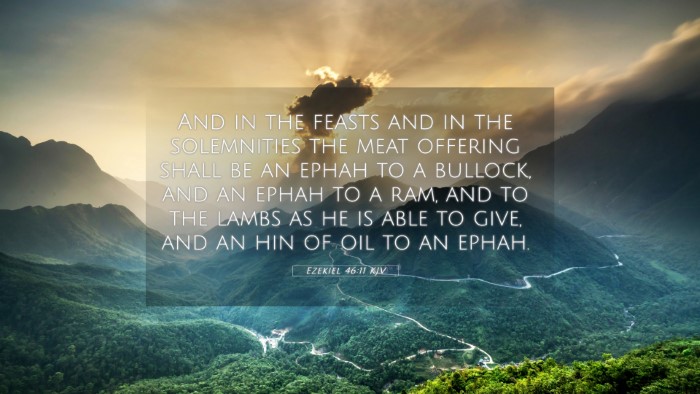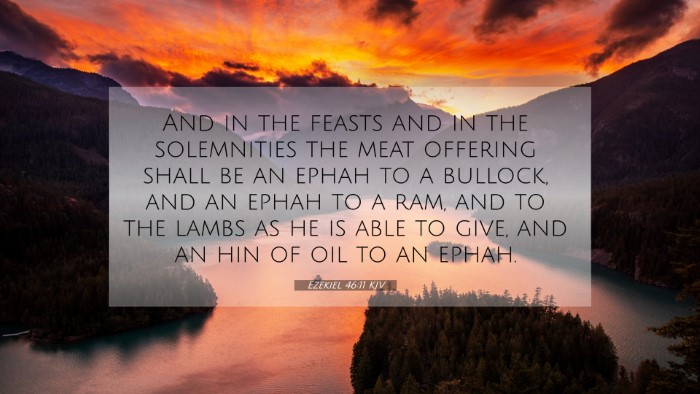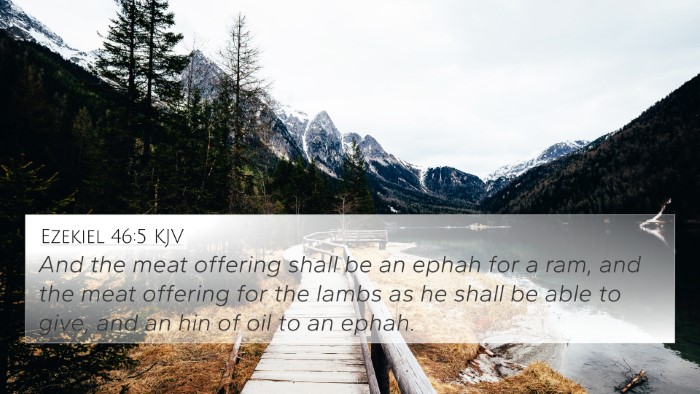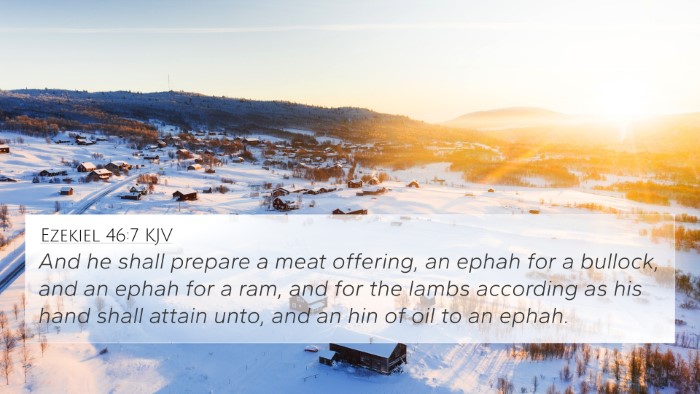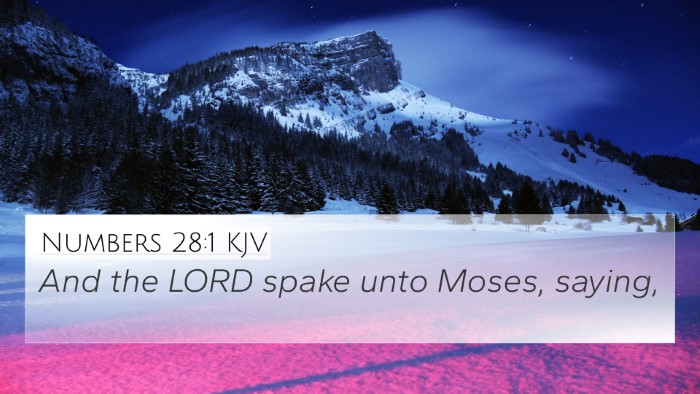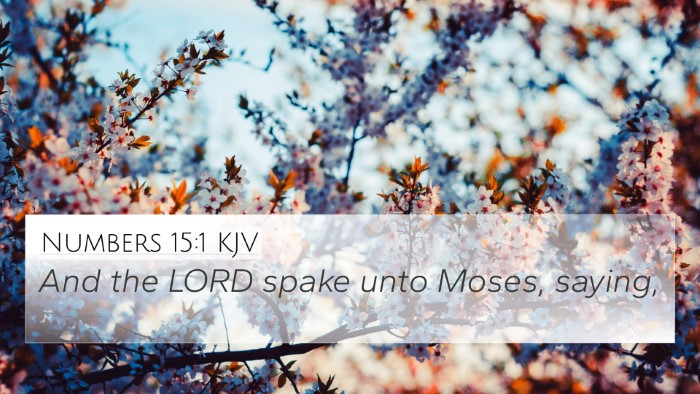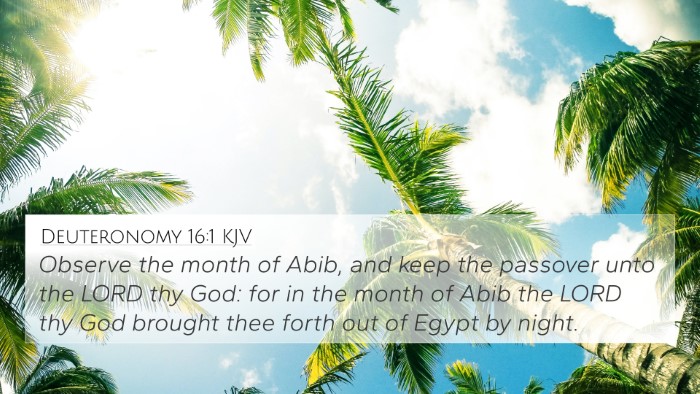Ezekiel 46:11 - Summary and Meaning
Ezekiel 46:11 speaks to the rituals and practices associated with worship in the restored temple. This verse is part of a larger prophetic vision where God communicates expectations for how Israel should live in accordance with divine guidance. Public domain commentaries such as those from Matthew Henry, Albert Barnes, and Adam Clarke emphasize various aspects of this passage, revealing the deep spiritual insights within.
Verse Analysis
The verse states:
"And in the feasts and in the solemnities, the meat offering shall be an ephah to a bullock, and an ephah to a ram, and to the lambs as he is able to give, and a hin of oil to an ephah."
This instruction showcases the specific requirements for offerings during festivals, indicating the importance of adhering to God's standards for worship.
Insights from Commentaries
Matthew Henry Commentary
Henry highlights the significance of proper worship and the devotion that is required during the feasts. The offerings denote the gratitude and recognition of God's provision. He states that every aspect of worship involves an acknowledgment of God's sovereignty and grace.
Albert Barnes Commentary
Barnes provides a detailed explanation of the specifications for the offerings, stressing that these were not arbitrary but carried rich meanings tied to atonement and thanksgiving. He draws parallels with previous offerings mentioned in Leviticus, showcasing a continuity in worship practices.
Adam Clarke Commentary
Clarke delves into the symbolic significance of the measurements and offerings. He interprets the ephah and hin as a demonstration of God's precision and holiness in worship—indicating that worship must be conducted in a manner that reflects His divine order and sanctity.
Cross-References
Ezekiel 46:11 connects with several other Biblical texts, enriching our understanding through thematic Bible verse connections. Here are some relevant cross-references:
- Exodus 29:38-41: Details of daily offerings which parallel the structured worship described in Ezekiel.
- Leviticus 23: Discusses various feasts and the offerings associated with them.
- Numbers 28: Offers regulations on daily, weekly, and monthly offerings, showcasing the continuity of offerings in worship.
- Psalm 51:16-17: Emphasizes that God desires a broken spirit rather than mere sacrifice, hinting at the heart attitude behind the offerings.
- Hebrews 10:1-4: Discusses the inadequacy of the blood of animals compared to the ultimate sacrifice of Christ.
- Isaiah 1:11-13: Critiques empty sacrifices that lack sincerity, reinforcing the importance of true worship beyond ritual.
- Malachi 1:6-14: Addresses improper offerings and the necessity of honoring God properly through worship.
Thematic Connections
In examining Ezekiel 46:11, we find strong connections through a comparative Bible verse analysis. Themes of obedience, worship, the heart of sacrifice, and the continuity of God's covenant with His people are prevalent across scriptures. Such cross-referencing Biblical texts could be useful in a broader study of worship practices or thematic Bible verse connections, illustrating the depth and unity of the message throughout the Bible.
Conclusion
Understanding Ezekiel 46:11 involves recognizing the important role of prescribed worship and the heart behind the offerings presented to God. The insights from the commentaries and connections to other scriptures reflect the multifaceted nature of Biblical teaching on worship. Those seeking to engage in cross-referencing Bible study can gain a profound appreciation for the sacredness and intentionality behind what it means to honor God through designated practices.
